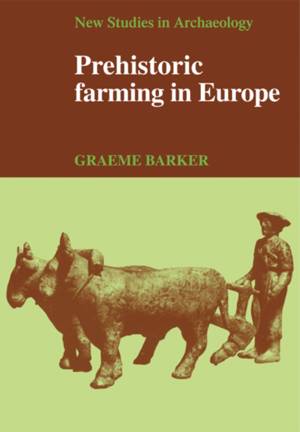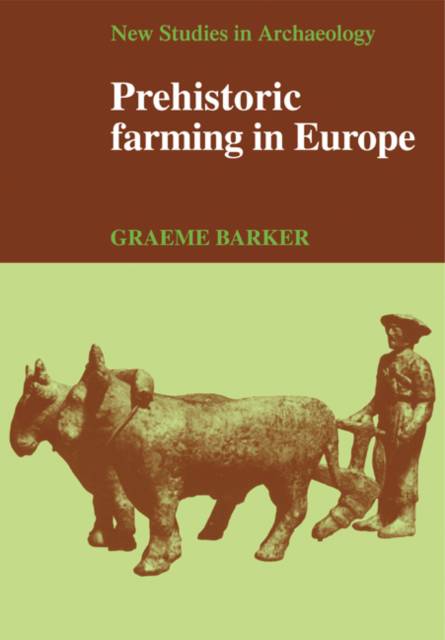
- Afhalen na 1 uur in een winkel met voorraad
- Gratis thuislevering in België vanaf € 30
- Ruim aanbod met 7 miljoen producten
- Afhalen na 1 uur in een winkel met voorraad
- Gratis thuislevering in België vanaf € 30
- Ruim aanbod met 7 miljoen producten
Zoeken
€ 67,95
+ 135 punten
Omschrijving
Drawing upon his own extensive knowledge of European archaeology, Graeme Barker has impressively integrated the full range of archaeological data to produce in this book a masterly account of prehistoric farming in Europe on a unique scale. He makes use of modern archaeological techniques to reconstruct the lives of prehistoric farmers in remarkable detail. Not only do we now have a vivid picture of the prehistoric farmyard, but we know what animals were kept, how they were fed and why they were bred. Evidence for crops grown and techniques of cultivation and husbandry helps recreate the prehistoric landscape. Even the social organisation that determined the use of resources, and provided the crucial stimulus for agricultural change, can be relived. Graeme Barker develops his argument through analogies with the agricultural history of classical and medieval Europe and concludes that today's industrial farmers can learn much from the successes and failures of early European farming.
Specificaties
Betrokkenen
- Auteur(s):
- Uitgeverij:
Inhoud
- Aantal bladzijden:
- 348
- Taal:
- Engels
- Reeks:
Eigenschappen
- Productcode (EAN):
- 9780521269698
- Verschijningsdatum:
- 30/08/1985
- Uitvoering:
- Paperback
- Formaat:
- Trade paperback (VS)
- Afmetingen:
- 170 mm x 244 mm
- Gewicht:
- 553 g

Alleen bij Standaard Boekhandel
+ 135 punten op je klantenkaart van Standaard Boekhandel
Beoordelingen
We publiceren alleen reviews die voldoen aan de voorwaarden voor reviews. Bekijk onze voorwaarden voor reviews.











